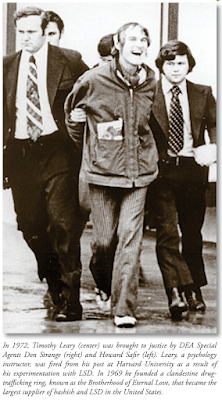Many, like Very Important Pothead Kareem Abdul-Jabbar, have been paying tribute to Bruce Lee on the 50th anniversary of his death. The Chinese-American martial artist and movie star smashed as many racial barriers and stereotypes as he did opponents, and another myth he smashed was that of the weak, do-nothing cannabis consumer.
According to the biography Bruce Lee: A Life by Matthew Polly, it was Steve McQueen who turned Lee onto marijuana. "It quickly became his drug of choice – Puff the Magic Dragon," Polly writes. "After a training session with one of his celebrity clients, Bruce would light a blunt and talk philosophy," listen to music and "have a ball," James Coburn recalled. "Blowing Gold was one of his favorite things."
"It was different and scary," Bruce said of his first experience getting stoned. "I was feeling pretty high when Steve gave me a cup of hot tea. As I placed the cup to my lips, it felt like a river gushing into my mouth. It was weird. Everything was so exaggerated. Even the damn noise from my slurping was so loud it sounded like splashing waves. When I got into my car and started to go, the street seemed like it was moving real fast toward me. The white centerline just flew at me and so did the telephone poles. You just noticed everything more sharply. You become aware of everything. To me it was artificial 'awareness.' But, you know, this is what we are trying to reach in martial arts, the 'awareness,' but in a more natural way."
Polly theorizes that "beyond its consciousness-raising appeal, Bruce's fondness for cannabis—at first he used marijuana and then later switched to hash—may have involved an element of self-medication. 'Never Sits Still' was a nickname and he had been hyperactive and impulsive since his childhood. Marijuana and hash seem to have served as a kind of chill pill."
DEATH AND LEGACYAfter a near fatal cerebral edema caused him to collapse on a Hong Kong movie set on May 10, 1973, Lee was examined by neurosurgeon Dr. Peter Wu. During the examination, Lee admitted that he had eaten hash immediately before the episode, and Wu advised him not to take it again. "It's harmless," Bruce scoffed. "Steve McQueen introduced me to it. Steve McQueen would not take it if there was anything dangerous about it." He refused diagnostic tests, saying he would get treated in the US.
"In 1973, Hong Kong had very little experience with marijuana," writes Polly. "It was conceived of as an evil Western hippie drug. Research since then has proven that cannabis does not cause cerebral edema or lead to death." He quotes Dr. Daniel Friedman, a neurologist at NYU Langone Medical Center. "There are no receptors for THC in the brainstem, the part of the brain that maintains breathing and heart rate," said Dr. Friedman, "which is why it is very near impossible to die directly from a THC overdose unlike heroin or barbiturates."










